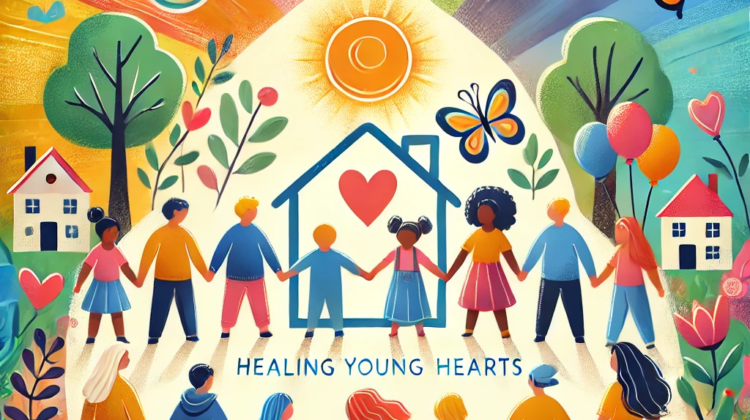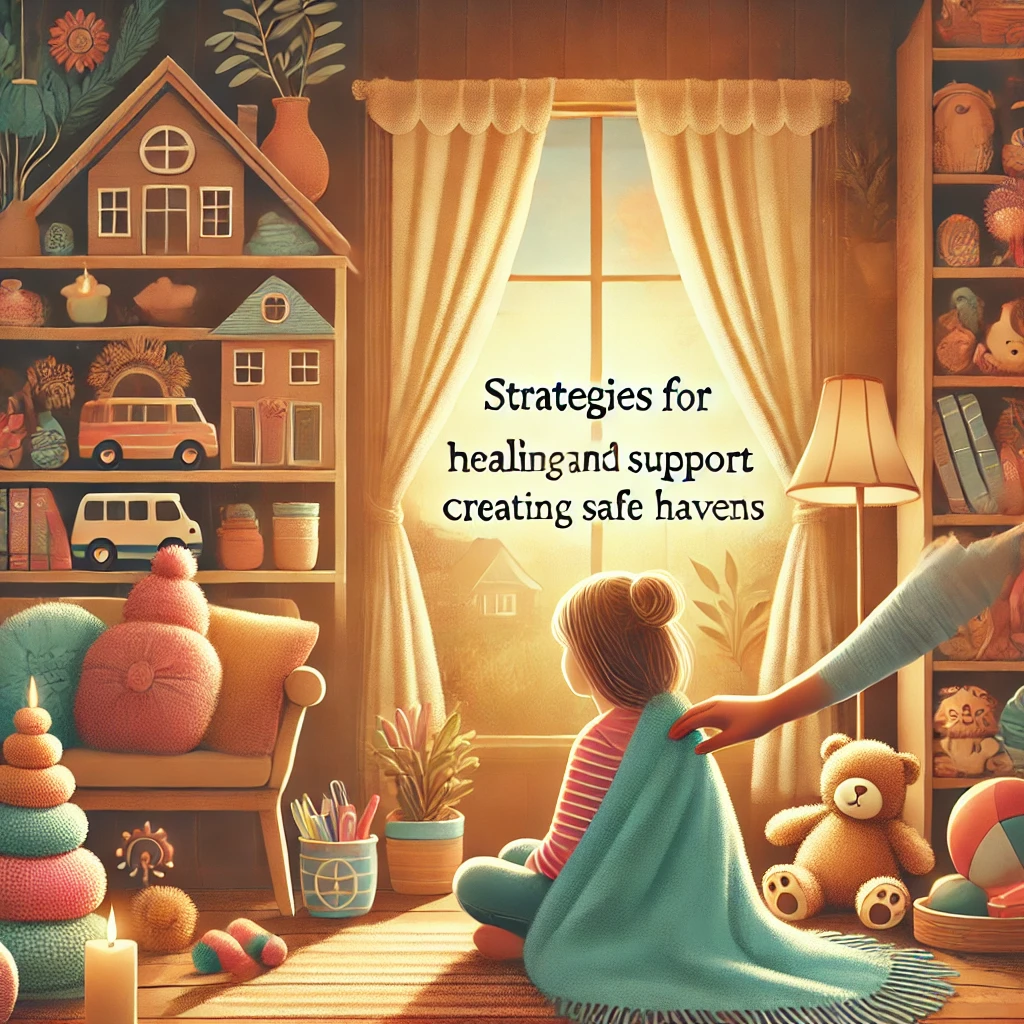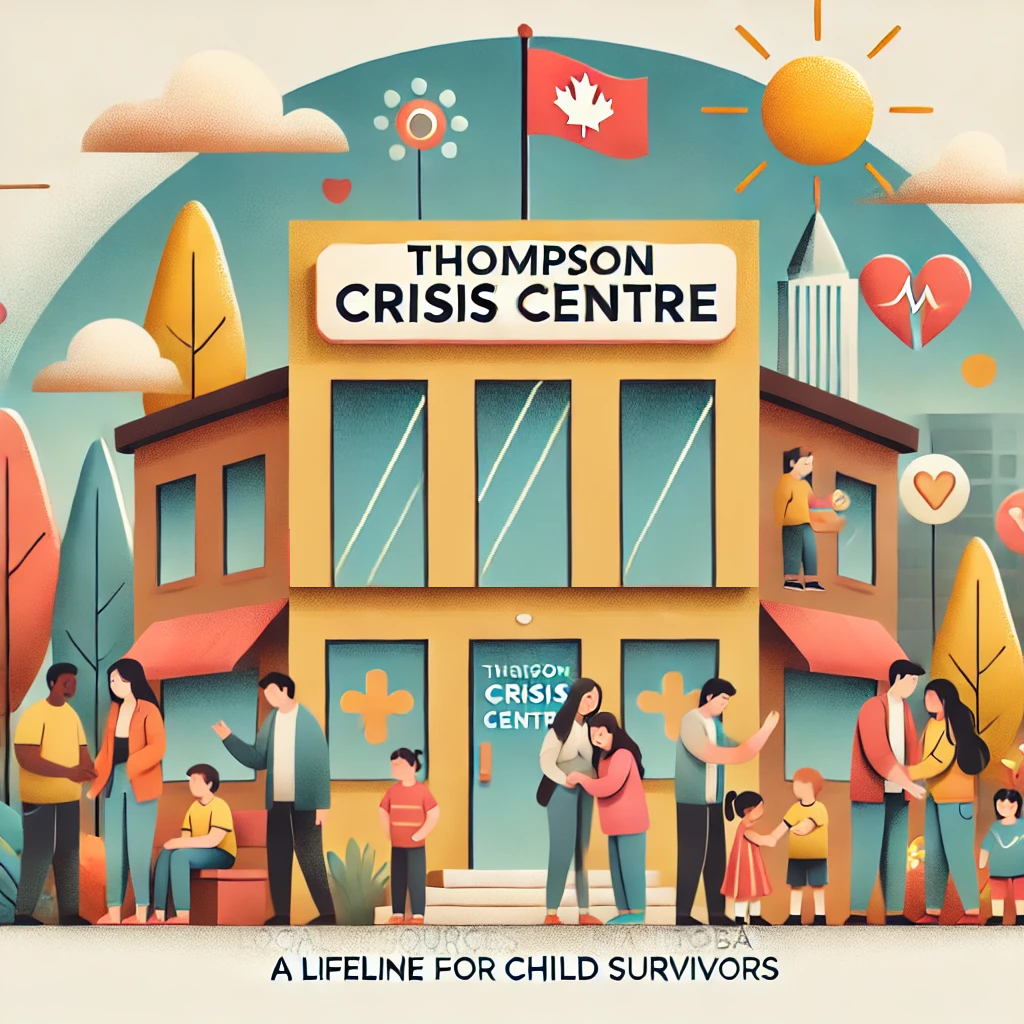
Healing Young Hearts: Empowering Children Who Witness Domestic Violence
Children who witness domestic violence often carry unseen scars that can profoundly affect their mental and emotional well-being. As awareness of the generational impact of domestic violence grows, it’s essential to understand the challenges these children face and the strategies available to support their healing process. This blog explores the emotional and mental health effects on child witnesses, practical support strategies, and local resources in Manitoba.
Emotional and Mental Health Challenges
Anxiety and Depression: Navigating a Turbulent Emotional Landscape
Witnessing violence at home creates a climate of fear and instability, leading many children to develop anxiety disorders. They may constantly worry about their own safety and the safety of their non-abusive parent. Depression is also common, stemming from feelings of helplessness and sadness over their family situation.
PTSD: The Lingering Shadows of Trauma

The traumatic experiences of witnessing domestic violence can lead to PTSD. Symptoms may include nightmares, flashbacks, and severe anxiety. Children may also exhibit hyper-vigilance, always being on edge and anticipating danger.
Behavioral Issues: Breaking the Cycle of Aggression
Children may display aggressive behavior, mimic violent interactions, or withdraw socially. Their ability to form healthy relationships can be severely affected, carrying the impact of domestic violence into their future interactions.
Academic Challenges: Overcoming Obstacles in Education
The stress and trauma of witnessing violence can lead to difficulties in concentrating, resulting in poor academic performance. Frequent absences from school due to family turmoil can exacerbate these issues.
Strategies for Healing and Support

Creating Safe Havens: Establishing a Secure Environment
Creating a stable and secure environment is crucial for the healing process. Children need to feel safe and protected to begin addressing their trauma. This includes consistent routines, a supportive caregiver, and a violence-free home.
Open Communication: Encouraging Expression and Healing
Encourage children to express their feelings and thoughts about their experiences. Validating their emotions and providing a listening ear helps them process their trauma. Use age-appropriate language and be patient as they navigate their emotions.
Professional Counseling: Seeking Expert Help
Professional therapy can be incredibly beneficial. Therapists trained in dealing with trauma can provide the necessary tools for children to cope with their experiences. Therapy options include individual counseling, group therapy, and family therapy, depending on the child’s needs.
Building Resilience: Strengthening the Spirit
Focus on activities that build resilience, such as engaging in sports, arts, and hobbies that the child enjoys. Positive reinforcement and creating opportunities for success can help rebuild their self-esteem and sense of normalcy.
Local Resources in Manitoba: A Lifeline for Child Survivors

Thompson Crisis Centre: A Beacon of Hope
Thompson Crisis Centre provides essential services and support for women and children experiencing domestic violence. Located in Thompson, Manitoba, the center offers a safe haven where survivors can find refuge and begin their healing journey. Their services include emergency shelter, counseling, support groups, and educational programs designed to empower survivors and help them rebuild their lives. The Thompson Crisis Centre also provides specialized programs for children, ensuring that young survivors receive the care and attention they need to overcome their trauma.
Klinic Community Health: Comprehensive Care
Klinic offers a range of services, including crisis counseling, therapy for children and families, and community support programs. They focus on providing holistic care to address the various needs of domestic violence survivors.
The Family Centre of Winnipeg: Empowering Families
The Family Centre provides counseling services, support groups, and programs tailored for children who have witnessed domestic violence. They aim to foster healing and resilience through comprehensive support.
Child and Adolescent Treatment Centre (CATC): Specialized Support
CATC offers specialized mental health services for children and adolescents affected by trauma, including those who have witnessed domestic violence. Their services include assessment, therapy, and support programs to help young survivors recover.
A Brighter Future for Our Children
Supporting children who witness domestic violence requires a multifaceted approach that addresses their emotional, psychological, and physical needs. By creating safe environments, fostering open communication, providing professional counseling, and building resilience, we can help these young survivors heal and thrive. Leveraging local resources in Manitoba ensures that children receive the specialized care and support they need to overcome their traumatic experiences.
If you or someone you know needs support, please reach out to these local resources, including the Thompson Crisis Centre. Together, we can make a difference in the lives of children affected by domestic violence, helping them to build a brighter, violence-free future. The Thompson Crisis Centre offers comprehensive services and support for those in need, ensuring that every child and family can find safety and healing.


 Beyond Yes and No: How Building a Consent Culture Can Transform Our Communities
Beyond Yes and No: How Building a Consent Culture Can Transform Our Communities





